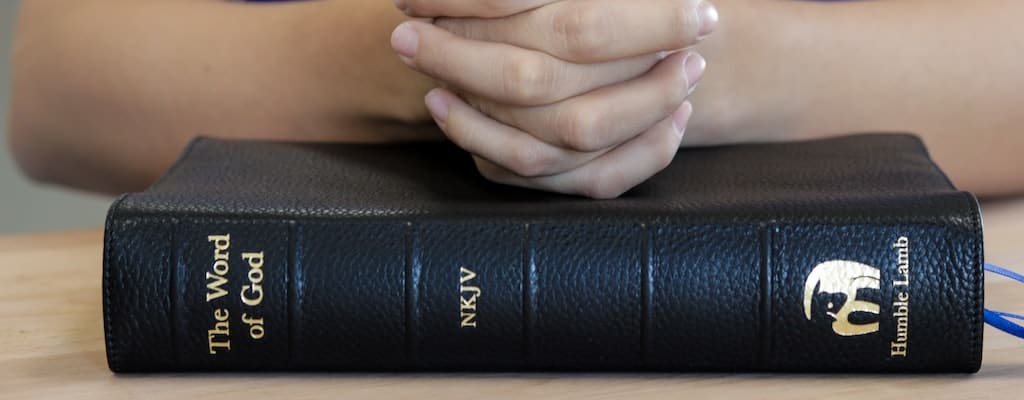God forbid: Idiom Meaning and Origin
What does ‘God forbid’ mean?
The idiom "God forbid" is used to express a strong wish or desire that something does not happen or come true, often in relation to a negative or unfortunate event.

Idiom Explorer
The idiom "woe betide" is used to convey a warning or threat of serious consequences that will befall someone. It implies that the person will face great misfortune or endure severe hardships if they do not heed the warning or change their behavior.
The idiom "heaven forbid" is used to express a strong desire for something not to happen, often followed by a negative outcome. It is often used to emphasize the speaker's hope or wish to avoid a particular situation.
The idiom "go wrong" means that something does not go as planned or expected, and results in a failure or a mistake.
An idiom that signifies something or someone considered to be a great blessing or stroke of luck, often seen as a divine or fortunate occurrence.
The idiom "for goodness' sakes" is used to express frustration, annoyance, or exasperation. It is often added to a statement or command to emphasize the speaker's strong feelings about a situation.
The idiom 'for goodness' sake' is used to show frustration, annoyance, or urgency about a situation. It is often used to emphasize a request or command. The phrase is believed to have originated from the expression 'for God's sake' and has been modified over time to be more polite.
An idiom used to express frustration, shock, or annoyance, often in an exasperated or pleading tone.
The idiom "first of never" means that something will never happen or occur. It emphasizes the notion that the event being discussed is highly unlikely, if not impossible, to take place.
The idiom "fat chance" is used sarcastically to convey that there is no or little likelihood of something happening.
Decoding Divine Origins
The idiom "God forbid" is widely used in the English language to express a strong wish that a particular event or circumstance does not occur. It carries a sense of urgency and concern, highlighting a desire for the avoidance of something negative or unfortunate. The idiom is often used as a standalone phrase, typically preceded by the word "for" or "heaven" for added emphasis. It is commonly employed in various contexts, ranging from everyday conversations to literary works. The versatility of this idiom allows it to be utilized in expressing concern or disapproval toward a wide array of scenarios, from minor inconveniences to major calamities.
One of the earliest written records of the phrase "God forbid" can be found in the Bible, specifically in the New Testament. In the Book of Romans, the apostle Paul uses the phrase multiple times to emphasize the importance of avoiding sinful behavior and its consequences. This biblical association adds depth to the idiom's usage, implying a potential sense of divine intervention or the gravity of the consequences being referred to. The phrase carries a weight of significance, as if it draws upon a higher power to create a sense of urgency and importance.
The idiom "God forbid" also bears similarity to the expression "heaven forbid". The addition of "heaven" before the phrase intensifies the wish for avoidance, as if appealing to a higher authority for protection and guidance. This variation of the idiom conveys a strong sense of concern and highlights the undesirable nature of the event or circumstance being referred to.
While the idiom "God forbid" is often used in a serious or grave manner, it can also be employed in a more lighthearted or sarcastic context. For example, the phrase "a cold day in July" can be used after "God forbid" to express the unlikelihood of a certain event occurring. This playful use of the idiom adds a humorous undertone to the expression of avoidance and highlights the absurdity of the situation being described. By incorporating such idioms, the idiom "God forbid" takes on a more nuanced and multifaceted meaning.
Another related idiom is "woe betide", which can be used in conjunction with "God forbid" to further emphasize the consequences of an undesirable outcome. This phrase suggests that great misfortune or trouble would befall someone or something if the event were to occur. By combining these idioms, a stronger sense of warning and concern is conveyed, amplifying the urgency and importance of avoidance.
The idiom "God forbid" can also be used alongside the phrase "first of never". This expression further intensifies the desire for avoidance by emphasizing the impossibility or unlikelihood of the event ever happening. The combination of these idioms creates a powerful and emphatic statement of the strong wish for the event or circumstance to never occur.
Lastly, "God forbid" can be combined with the phrase "as if" to convey a sense of disbelief or denial towards the event or circumstance being referred to. This combination suggests that the speaker finds the idea or possibility so absurd or unlikely that they cannot fathom it actually happening. It adds a layer of incredulity and disbelief to the expression of avoidance, further emphasizing the strong desire to prevent the event from occurring.
Example usage
Examples of how the idiom *God forbid* can be used in a sentence:
- 1. Let's hope that God forbids any accidents during our trip.
- 2. God forbid that you should lose your job, we need the income.
- 3. We're going to the beach, but God forbid it starts raining.
More "Religion" idioms



